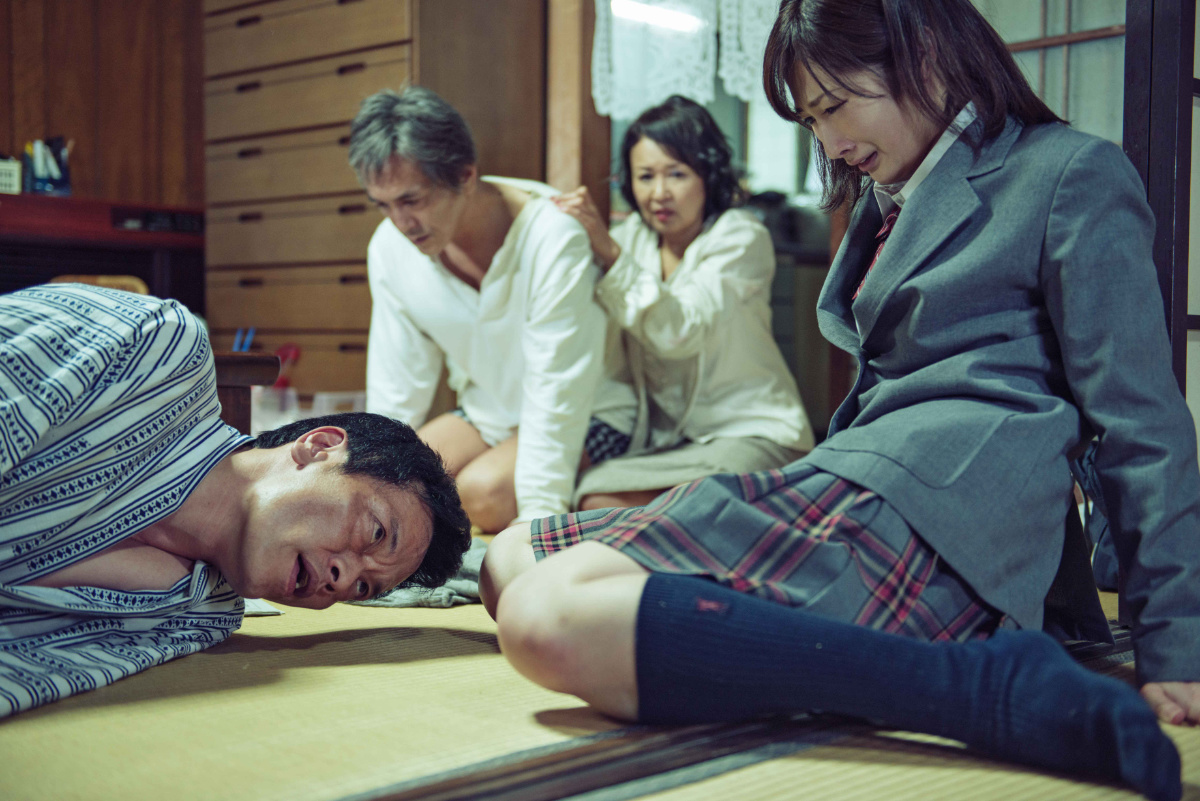Katsuura once led the organization which dominated the town of Kiyamachi in Kyoto. 5 years ago his arms and legs were amputated in a certain incident and now receives care from Sakamoto, a young underling of the organization turned nursemaid. Katsuura makes a desperate living by using cutthroat harassment to corner his debtors and exact the money they owe. Then one day he tracks down the relations of the person responsible for the loss of his limbs.
Sasaki Hideo who starred in Versus, Alive, and many of Kitamura Ryuhei’s movies branched into directing in the early 2000s. In 2015, he directed the live-action adaptation of Maruno Hiroyuki’s hard-boiled novel of the same name. Working off a script written by Maruno himself, Sasaki does not shy away from the extreme depiction of its main character, a quadruple amputee debt collector who pushes debtors to the pit of despair through malicious harassment, which invited controversy when the original novel was published. This is one of those rare, unflattering portrayals of a disabled person which so goes against “type” that it was bound to foster controversy. But ultimately there is no reason why people with disabilities can not be portrayed as antagonistic, so long as their motivations are as fleshed out as any non-disabled antagonist.
As the New York Asian Film Festival at the Lincoln Center wrote: “Hideo Sakaki’s politically incorrect gangster fable alternates scenes of cringing corporeal violence with moments of even more shocking tenderness, united by an underlying tide of black humor.”
The title refers to a Daruma doll, the Japanese equivalent of a weeble-wobble.

